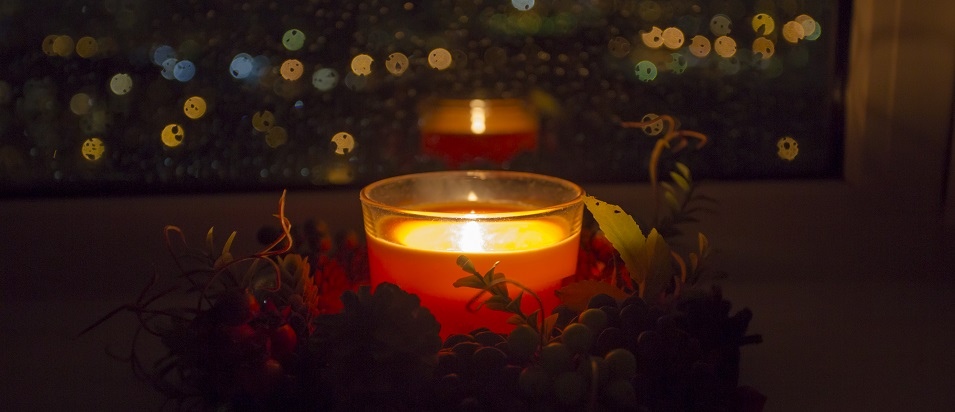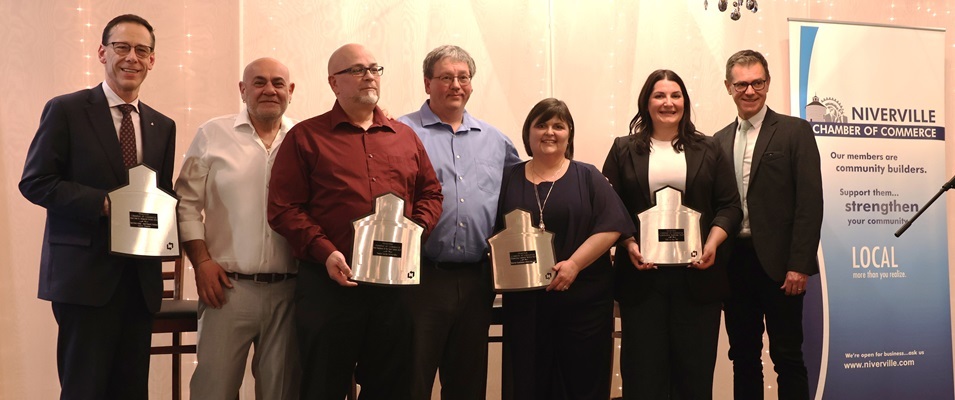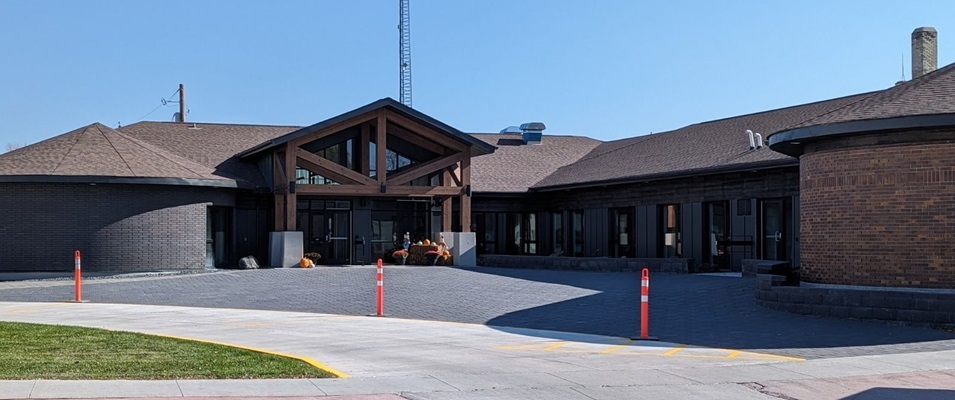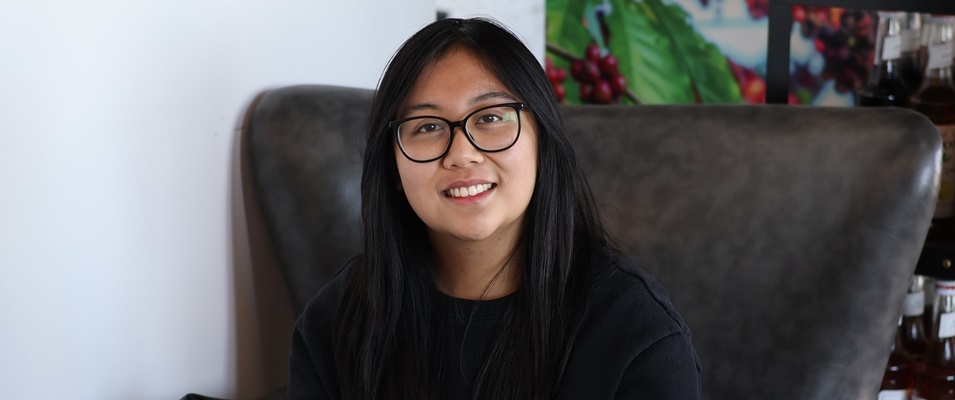
Experiencing grief can be awkward, painful, and lonely. It can be tempting to want to pause grief—or even pause celebrating the holidays—altogether. Understanding how complicated grief is and how it affects us can help provide a sense of empowerment to navigate the holiday season.
Grief Makes Us Real
Niverville resident Mona Stott is all too familiar with the complications that come with dealing with grief and loss, having lost her son Joey in 2007. More recently, she’s lost three close friends in a relatively short period of time.
“One thing loss has done to me, through my girlfriends and through my mom and dads, and losing my son, is made me true,” Stott says. “It made me real.”
To Stott, learning what it meant to become real came in three ways.
The first was a lesson in the very real pain of being human. When she learned that Joey had taken his own life, she was struck with sorrow and guilt. Part of it was wondering if she had failed him, and part of it was survivor’s guilt that she continued to live.
“I had to go home that night incredibly angry,” she says. “I couldn’t go to sleep. How could I go to sleep when my baby was in the morgue?”
Then she learned the meaning of community and about who will really be there for you when you need them.
“I lost three of my really good girlfriends,” said Stott. “They were my support system. When you make a pact and give somebody your word, you keep it… But that’s something people flippantly do. When it comes to the crunch, will they keep their word?”
Stott is talking about the commitment it takes to live in community with one another, where residents and neighbours have an obligation to step up and be there for each other when things get hard.
“As humans, we need to support each other and be there, and don’t say we understand when we don’t. And don’t gossip. Gossip fuels the pain and makes things horrible. If you don’t have anything nice, don’t say anything at all.”
Grief isn’t just about death. Someone might be experiencing grief about going through divorce, and children may grieve that their parents are no longer together. It’s also common to grieve the loss of a pet, a business that had to close, or any number of other major life shifts.
You never know what someone is going through, and Stott says that community members should be nosy, but “for the right reasons.” When you get to know your neighbours, you may learn how to help them.
Thirdly, she learned—and is continuing to learn—to really appreciate life.
“I go through life right now and I wake up in the morning and think of Joey, first thing,” she says. “I think of all my loved ones. It’s not even consciously. It’s just there all the time. There’s always an inner ache. Grief is always there. We grow around it. It doesn’t shrink.”
She says that she needed to learn how to give herself permission to move forward. She admits there was a time when she wanted to die and be with Joey. She doesn’t feel that way anymore, but it took 15 years to get there.
“I have two beautiful grandchildren. I have a beautiful life. I have a wonderful son-in-law who I call my son. I have a daughter and a husband. I have a wonderful life, in spite of losing Joey. And it takes a lot of growing to get there and to allow myself permission to not have that guilt.”
Stott says that she incorporates talking about Joey into everyday life.
“I want my granddaughters to know their uncle was amazing. They saw a white feather the other day. Where would a white feather come from in this weather? And they said, ‘It’s Uncle Joey. Sent from heaven.’ I said absolutely. The small moments take on so much more meaning. You feel it in the depth of your gut. I’ve never tasted life like I do now.”
Channelling Anger
Stott says that before you can appreciate life again, you have to have come through some of the hurt and anger. One thing Stott did was take action on her conviction to make a real difference in the community of Niverville. She became a master trainer with the ASIST Suicide Prevention Training Program, a vocal advocate for mental health, and started a charity called Imagine: Mental Health Matters, which closed in 2019 after operating for 12 years.
She continues to work on promoting how to take action in challenging situations, especially when talking about someone’s mental and physical wellbeing.
“I’m okay with somebody being upset with me, if I’ve done the right thing,” Stott says. “I know I’m doing it because I love them. How they receive it is up to them and that’s okay by me.”
She points out that a number of organizations have been started out of a similar need for people to do what they can to ensure what caused them pain doesn’t happen to somebody else, if at all possible.
“When you lose something as valuable as a loved one, you have to take that grief and that anger and channel it,” she says. “How did Cancer Care come about? How do mental health organizations come about? Mothers Against Drunk Drivers? It’s because people took their grief, sadness, and anger and channelled it in the hopes that others don’t have to go through the same thing. You can’t leave it inside. You’ve got to process it. If you leave it inside, you’re a pressure pot ready to explode. And you can’t numb it. Numbing only draws out the suffering.”
Stott describes emotions as a river that has to keep flowing. If it doesn’t, the emotions can get stuck.
“If they become stagnant, sometimes people need a gentle tug to get to the other side. Sometimes it’s not really well-received, because they’re maybe not in that space to hear it, but it will resonate with them and you’ll feel good because you loved and cared for them.”
The Holiday Challenge
Whether you have or haven’t gone through a period of grief, it can be difficult to know what to do or say during the holidays. Stott says that it shouldn’t be assumed that someone is okay, and sometimes just sending a text to say you’re thinking of them is a very good idea.
And if you are having thoughts of self-harm or suicide, you could have someone arrange to come check on you.
“Initially when you have a trauma in your life, you’re in a bubble, and then as the months move on that bubble dissipates and reality hits,” says Stott. “Hopefully you’re healthy enough to do the process. I went to seek professional help.”
When the tears do come, Stott says that experiences gratitude. She points out that we never know when the emotion is going to hit, but when someone authentically asks how another person is doing, and when they take the time to listen to a real answer, it is welcome.
“It’s okay to speak about death,” she says. “You are helping me remember my son. Thank you. You are helping me remember my girlfriends. Thank you. Very often, talking with a friend does not relieve grief, but that pressure pot I was talking about gets some release. And then it’s easier.”
Depending on where a person is in their grief journey, holiday traditions can sometimes be painful reminders of loss, but they can also serve to bring moments of joy.
Where traditionally one would find an angel or a star, Stott decorates her Christmas tree with a picture of Joey at the top.
“I have a picture of him from 2007 at the top and that’s my angel,” says Stott. “That is more meaningful than anything. But you can’t tell somebody to get over it. You can’t tell somebody to put up a tree and be happy. It’s a process.”
She strongly encourages anyone who has experienced loss to keep reaching out to the community and get involved with others, and also to accept the invitations when they’re made.
“There’s lots of people opening up their homes and their arms. Sometimes it’s hard to walk through those doors, but it’s a step forward. First choose to walk to those front doors.”
Acknowledge Grief without Judgment
Tish Wilson of nearby Linden also describes her personal journey of grief as life-altering. She lost her brother Bill in 2016 at the age of 57 and her brother Sean in 2018 at the age of 52.
Knowing that grieving is extremely subjective, and no one’s story of grief can be compared with another, Wilson shares that her brother Bill died as a result of drug addiction, and experience that was uniquely painful.
She emphatically wants to remind people that insensitive or judgmental comments are not helpful.
“One person did feel the need to comment on my brother Bill’s death,” Wilson says. “He died as a result of his drug addiction and this person was quick to point out that had he lived a better lifestyle, he might still be here. Really?”
She emphasizes that people experiencing loss are looking for kindness and sensitivity. According to Wilson, we shouldn’t feel concerned that mentioning a person’s loved one will be distressing for them. After all, they’re already thinking about the one they lost. Saying nothing at all to someone about their loss can also be hurtful.
During the holidays, people often get together with people they haven’t seen for a long time. If you know someone has experienced a recent loss or are still grieving a loss, Wilson says it’s often enough to say something short and straightforward.
“If you have no personal experience with losing someone close, please do not try to minimize the other person’s loss,” she says. “Just acknowledge it with something simple like, ‘I’m so sorry you’re hurting.’”
Wilson has experience organizing grief support groups in her community and says that grief has no expiration date and no linear course that it follows.
“People wait for you to pass through the ‘five stages of grief’ and get back to your life the way they knew it to be. Grief has its own timeline, and for some folks there will be no return to how things used to be.”
She’s also observed that during the holidays, emotions run high for many folks, whether they’re grieving or not. Keeping an awareness of how someone might be experiencing that empty place at the table during Christmas dinner—or whatever festive event is celebrated—is a simple kindness that all can practice regardless of our own emotional state in this season.
“Never make assumptions or judgments about the depth of someone’s loss,” says Wilson. “You simply do not know what the deceased meant to that person. There will be people who are unmoved by the passing of their 96-year-old grandmother, saying she lived a good, long life. And others who will be devastated, saying, ‘She raised me since I was a child and meant the world to me.’ Acknowledge their grief. Please.”
Wilson also adds that she truly believes some people will grieve the loss of a beloved pet even more than the loss of a parent, family member, or friend.
“Once again, you simply don’t know what that companion meant to them. Just acknowledging grief without judging is so important.”
Grief Support
It can be helpful to identify the friends or family who make up your circle of support. Support groups and therapists are also excellent resources to take advantage of when you encounter grief in your life. A qualified mental health professional can give you more tools to function while grieving. Such a person often has the experience and resources to provide real help.
Angelle Arinobu is an intake counsellor and associate professor in Counselling Psychology at Providence University College and Theological Seminary. She suggests that it’s important at this time of year to pay attention to what our bodies are telling us about our feelings.
“The symptoms of grief can show up in all kinds of ways, including in physical symptoms, which can include headaches, fatigue, and a lowered immune system,” says Arinobu. “If you’re grieving, don’t push yourself to do all the things. It’s okay to say no. It’s okay to be sad. It’s okay to rest.”
She also says that grief is subjective and it can help for anyone in grief or accompanying a grieving person to broaden his or her understanding of what grieving looks like.
“Grief doesn’t look like one specific thing,” Arinobu says. “Grief during the holidays can happen for all types of reasons that not only include the death of a loved one. Let’s not forget pets can be loved ones, too. But it may also include broken relationships, a loss of job or financial status, or hopes and dreams that haven’t come to be, including dreams of being pregnant, in a relationship, or getting ‘that’ job.”
Rob Plese Schroeder, a therapist at the Aulneau Renewal Centre in Winnipeg, adds that the holiday season is, for many people, a time to connect and find togetherness. And this can bring with it many triggers, overwhelming memories, and feelings.
Like Arinobu, Schroeder says that our bodies send us signals about how we are coping.
“Sometimes, despite what our bodies are indicating to us, we push through as if there is a traditional protocol for how to do this season,” says Schroeder. “Yet that nagging feeling is often linked with triggers from memories past. People during this season often react to what is going on from a familiar grieving pattern, and often work hard not disrupt that traditional cycle.”
Schroeder points to some signals about what grief signs to watch out for during the holiday season. The Kübler-Ross model of grief illustrates that there are many areas people tend to get hung up on in our journey towards letting go. Schroeder says that some people get stuck in denial, others in anger or even bargaining, and that a person in grief will want to be wary of where they are at if those things are at play.
“I would want people to better understand that grief is not only about loss, but sometimes it is about growth and engaging with change,” he says. “The holiday season is an invite to be reminded about where we are and what has happened to us and within us. We sometimes are triggered by not getting our goals met, or losing out on our hopes and dreams for how things should or ought to have been. Grief and grieving are about leaning to engage with the change and embracing all that is become.”


















